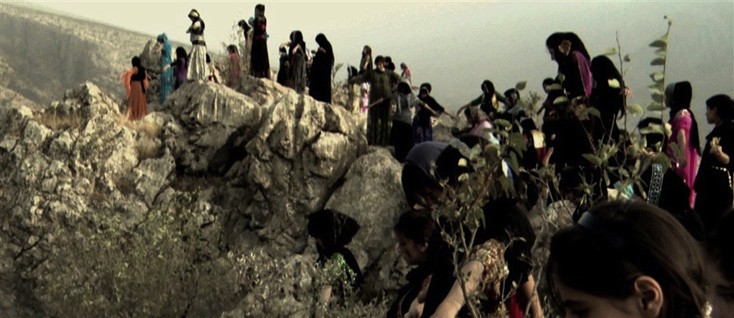Tonight at 7 p.m., the Center for Middle Eastern Studies will present a free showing of the film “About 111 Girls” as part of its Spring 2014 Film Series of debut films by Middle East directors.
Directors Nahid Ghobadi and Bijan Zmanpira exhibit the unique story told through an unseen cultural perspective of an Iranian bureaucrat traveling through Kurdistan on behalf of 111 women seeking change for the lack of marriageable men — and the government’s failure to resolve Kurdish issues. The film, shot across the alluring Iranian desert, merges a cross-cultural comedy with a satirical political viewpoint to show the untold story of why these Kurdish women are responding to a lack of suitable husbands.
“When people think of Iran, they often think of conflict,” said Christian Sinclair, assistant director at the Center for Middle Eastern Studies and president of the Kurdish Studies Association.
“There’s so much more depth to the culture. For example, most people don’t know that more than 70 languages are spoken in Iran.”
To start out the night and to give a brief historical context of the place and time of the film, there will be an introduction by presenter Jason Watson, a graduate student in the School of Middle Eastern & North African Studies focusing on Iran Studies.
“About 111 Girls” will be the first of four films shown this semester on the first Wednesday of each month. This film, like the remaining three of the semester, will provide a safe place at its conclusion to discuss questions of character, clarify any bits of missed information or respond to the film.
Speaking about why he chose “About 111 Girls” out of countless film options to present to students, Sinclair talked of the general likability of the film, along with its representation of the Kurds’ situational crisis in the ’80s.
“I thought this one was an interesting film,” Sinclair said. “It’s rare that you find a film that talks about minorities in Iran. There’s generally not much shown about the Kurds, particularly in Iran.”
The film will be shown tonight in the Marshall building in room 490 and is open to all students, regardless of whether they have any knowledge of Iranian Kurds, are curious about culture in Iran or are focusing on Middle Eastern Studies.









